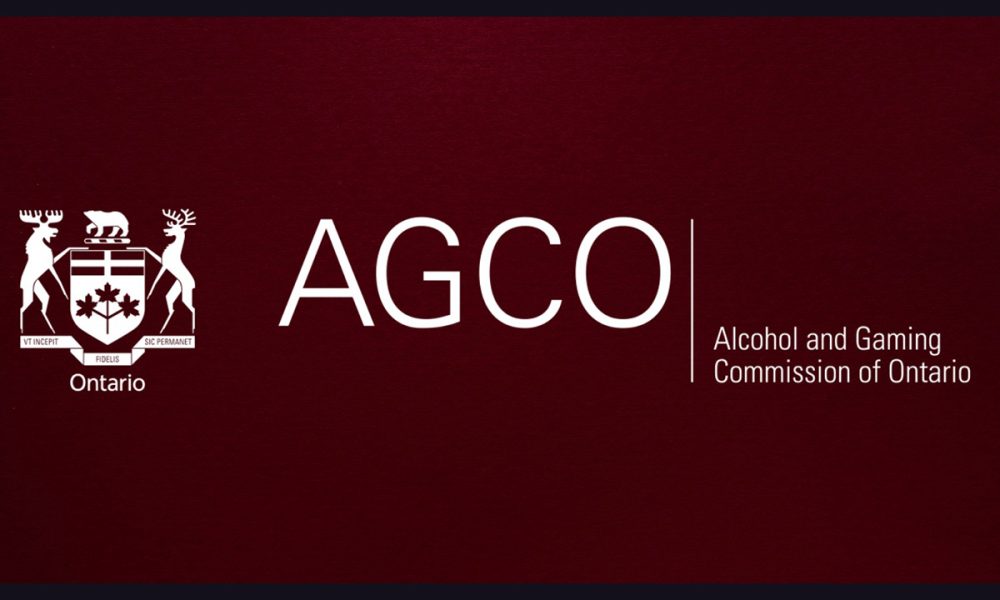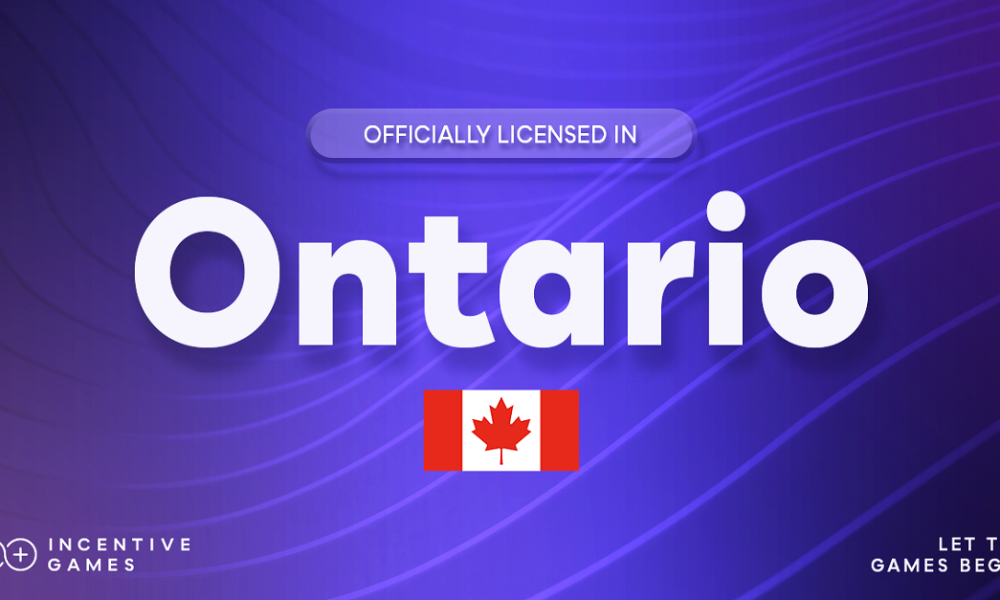

AGCO
FSB secures landmark regulatory approval in Ontario
Sports betting provider takes another major step forward in North America with approval accomplished before market opening
Global B2B sports betting & iGaming service provider FSB has announced they have secured regulatory approval from the Alcohol and Gaming Commision of Ontario (AGCO) to launch its services in the Canadian province.
By becoming one of the first suppliers to receive recognition of the Gaming Related Supplier license in the province, FSB is license-ready as the Ontario online market opens on Monday April 4th.
This significant achievement is another leap forward for the award-winning supplier in North America and comes just weeks after news of a major sports wagering deal in South Dakota.
FSB will be supplying it’s award-winning omnichannel sportsbook and comprehensive iCasino aggregation to its operator partners in the territory, enabling them to curate sports betting and iGaming experiences that suit their target audiences.
Dave McDowell, Chief Executive Officer at FSB , said: “This hugely exciting news is a landmark moment for FSB and adds further fuel to our aggressive, forward momentum in the North American region.
The pre-market opening approval from the AGCO pays a huge tribute to the quality of our technology, services and people as we push forward in global regulated markets in 2022.
Bob Akeret, Vice President of Operations, North America at FSB, said: “It’s an immensely proud moment for our FSB North American team to be one of the first suppliers to receive AGCO certification.
Being licensed as a Gaming Related Supplier as the market opens puts us in a strong position to play a leading role in Ontario and build further and faster on the major growth we have achieved in North America over the last 12 months. This is an opportunity we look forward to embracing.”
AGCO
AGCO Removes Cap on Seller Commission for Charitable Lottery Products

The Alcohol and Gaming Commission of Ontario (AGCO) has updated several lottery policies to remove the cap on seller commission for Paper Raffles and Media Bingo, along with removing the prohibition on Catch the Ace paper lotteries, to align with other charitable lottery products.
Licensed charities may now negotiate commissions directly with sellers and determine commissions, provided they are reasonable and tied to the cost of service provided by the seller.
These updates further the AGCO’s commitment to adopt an outcomes-based regulatory approach and reduce burden for the charitable gaming sector. Local charitable organizations will have greater flexibility to make decisions that best serve their fundraising objectives.
Important Reminders
• Charities must still receive approval for other expenses incurred under their licence and retain receipts for seller commission paid.
• Licensing authorities will not require documentation to be submitted as part of the application process, however, charities are still subject to audit to determine compliance.
• Charities are reminded of their legal requirement to meet their obligations under the Criminal Code and with respect to conducting and managing a charitable gaming scheme.
• As with all licensed charitable lottery events, charities must take the necessary steps to ensure that they are conducting and managing the lottery event within Ontario.
For charitable gaming-related inquiries, email an AGCO Eligibility Officer at [email protected] or call AGCO Customer Service at 1-800-522-2876, Monday to Friday from 8:30 a.m. to 5 p.m.
The post AGCO Removes Cap on Seller Commission for Charitable Lottery Products appeared first on Gaming and Gambling Industry in the Americas.
AGCO
INCENTIVE GAMES SECURES ONTARIO GAMING LICENSE

Incentive Games, a leading B2B games provider, is proud to announce that it has been awarded an Ontario Gaming License by the Alcohol and Gaming Commission of Ontario (AGCO), effective today. This achievement enables the company to offer its portfolio of real-money games to licensed operators and players across the province.
The license underscores the Incentive Games’ commitment to meeting the highest standards of compliance, security, and operational excellence. The rigorous application process demands robust security protocols and comprehensive responsible gaming measures and affirms the company’s readiness to enter one of Canada’s most dynamic iGaming markets.
The North American market is a strategic focus for Incentive Games, and this milestone follows closely on the heels of the company receiving its Provisional Michigan gaming licence from the Michigan Gaming Control Board earlier this month.
Incentive Games will distribute its real-money gaming content in Ontario through Incentive Studios, the company’s dedicated Real-Money Gaming division, ensuring a focused and tailored approach to the market.
“Ontario represents a huge opportunity for us, and securing this license is a proud moment for the whole team,” said John Gordon, Chief Executive Officer at Incentive Games. “It reinforces our dedication to meeting the highest standards while delivering compelling real-money content. We’re looking forward to building strong relationships in the region and continuing our momentum across regulated markets worldwide.”
The post INCENTIVE GAMES SECURES ONTARIO GAMING LICENSE appeared first on Gaming and Gambling Industry in the Americas.
AGCO
Prime Skill Games Inc. Official Response to AGCO Press Release

As CEO of Prime Skill Games Inc., I feel compelled to address recent comments made by the Alcohol and Gaming Commission of Ontario regarding so-called unapproved gambling machines in convenience stores across the province.
Let me be perfectly clear
Our machines are not gambling devices. They are entirely skill-based, fully compliant with the law, and built on the fundamental idea that players are in control. The outcome of every session is determined solely by the player’s ability, not by random chance.
Prime Skill Games is proud to be the only true skill game operating in Ontario today.
We categorically reject any suggestion that our products fall under the definition of unregulated gambling. Such statements are inaccurate, misleading, and fail to recognize the critical distinction between games of skill and games of chance.
We stand firmly behind the legality of our machines and the integrity of our operations. We will demonstrate this through every available means, whether through legal documentation, expert analysis, or, if necessary, before the courts. We are prepared and unafraid to defend the truth.
To our players, partners, and business community, we want to reassure you that our mission has not changed. We are committed to offering a responsible, transparent, and innovative entertainment experience. We will not be intimidated by broad and baseless accusations, and we will continue to move forward with strength and clarity.
Sincerely
Matt Zamroźniak
Chief Executive Officer
Prime Skill Games Inc.
The post Prime Skill Games Inc. Official Response to AGCO Press Release appeared first on Gaming and Gambling Industry in the Americas.
-

 gaming3 years ago
gaming3 years agoODIN by 4Players: Immersive, state-of-the-art in-game audio launches into the next generation of gaming
-
EEG iGaming Directory9 years ago
iSoftBet continues to grow with new release Forest Mania
-
News8 years ago
Softbroke collaborates with Asia Live Tech for the expansion of the service line in the igaming market
-
News7 years ago
Super Bowl LIII: NFL Fans Can Bet on the #1 Sportsbook Review Site Betting-Super-Bowl.com, Providing Free Unbiased and Trusted News, Picks and Predictions
-
iGaming Industry8 years ago
Rick Meitzler appointed to the Indian Gaming Magazine Advisory Board for 2018
-
News7 years ago
REVEALED: Top eSports players set to earn $3.2 million in 2019
-
iGaming Industry8 years ago
French Senator raises Loot Boxes to France’s Gambling Regulator
-
News7 years ago
Exclusive Interview with Miklos Handa (Founder of the email marketing solutions, “MailMike.net”), speaker at Vienna International Gaming Expo 2018









